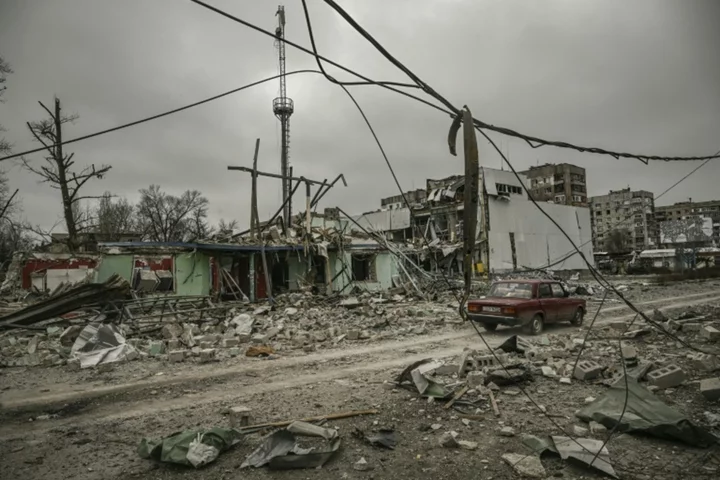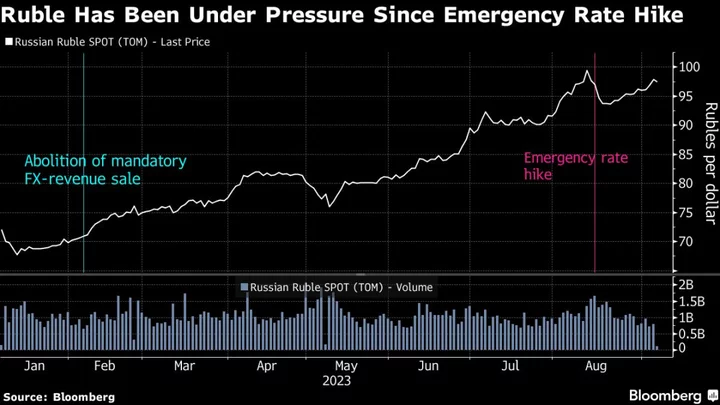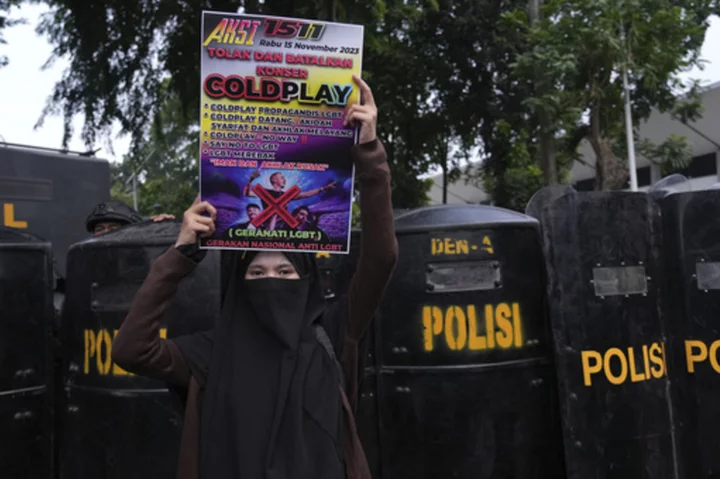On a narrow asphalt strip scarcely visible late at night, a Ukrainian soldier sped along with his lights off at the wheel of a large armoured Humvee jeep.
"Taxist" –- his military call sign -- drove quickly as light rain fell on the last road leading to Avdiivka, a town in Ukraine's eastern region of Donetsk.
Avdiivka, a former coal hub, has become a symbol of a grinding war in which neither side has made a decisive breakthrough in more than a year.
Ukrainian soldiers primarily ply this route at dawn in the semi-dark, to avoid being a target for the artillery or drones of nearby Russian forces.
Suddenly, the shadow of a Ukrainian military vehicle appeared and Taxist had to jerk the wheel round hard to avoid a collision.
"Damn, that was close! He could have flashed his headlights, I can't see anything at this time of day," said Taxist, a former taxi driver in his 50s and a volunteer with the Skala assault battalion.
Around 6:30 am, the Humvee made it to the Khimik district of downtown Avdiivka, marked by a swathe of destroyed building blocks.
The only signs of life are a few chirping birds and barking dogs. The crump of explosions, some far away, some closer to home, is constant.
Avdiivka has faced incessant attacks from Russian forces looking to surround and seize it.
Only around 1,350 people still live there, compared to 30,000 before the war.
Russian troops hold large parts of the town just outside Donetsk -- the regional capital under Russian occupation.
The Ukrainians still defend an area approximately eight kilometres (five miles) wide, from the city to the northwest.
- Grey faces -
In Avdiivka, there remains a solitary humanitarian aid centre, open in the basement of an uninhabited building and equipped with a generator.
Each day, residents come to get warm, have a chat, a cup of coffee and charge their phones.
Around 15 people gathered in the room, as well as four cats and three dogs.
Their grey faces betrayed their fatigue.
Oksana came by bike along with her husband, from the eastern part of the city where they live.
Their district has been "least hit" by the bombardments, she said.
Until this summer Oksana worked as an executive in Ukraine's largest coking and chemical plant -- a 340-hectares (850 acres) on the north side of Avdiivka.
Only a handful of employees remain out of a pre-conflict workforce of 4,000.
The Russians have moved in closer and taken up positions within sight of the plant's tall chimneys. Ukrainian soldiers are still dug in defending the site.
Oksana does not want to leave.
"We've spent 30 years investing everything we have in our house," she said. "I shall be 50 on January 1. Why should I start again from scratch somewhere else?"
Retiree Oleksandre Makarov, 65, also does not want to leave the town.
A former employee from the coking plant, he lives in a nine-storey block in the Khimik district.
He lives off humanitarian aid, and has a wood stove to keep warm and cook.
The situation has gotten worse since October 10, he said, when the town started to come under heavy bombardment.
But, he said he wants to stay, "because this is where I come from".
"I studied in Donetsk... I was sent to work in Avdiivka," Makarov said. "Where am I going to find another flat? With what money?"
- Russian prisoners -
In the late morning, outside the shelter, the explosions continued unabated.
When it was time for Taxist to leave, he took a longer detour on the way back to avoid the riskier areas.
He made it safely back to Skala battalion headquarters, away from the front, where the unit had just captured five Russian soldiers.
One of them, 25-year-old Nikolai, agreed to answer questions from AFP, under the watchful eye of his captors.
The former factory worker said he had "a week" of military training, then was taken immediately to the frontline with around 30 other Russian soldiers.
They were "bombarded all day", the prisoner said, adding that of the original 30, five or six died and another 15 were injured.
He surrendered the same evening.
The leader of the Ukrainian battalion, who uses the name "Skala" after his group, said that the Russian army has seen heavy losses in its assaults against the Ukrainian defences.
"The enemy is really attacking," the 34-year-old commander said. "And in some places, they are seeing success."
"I do not have such a huge resource of manpower at my disposal as Russia does. I preserve my men," he said.
"Each of my attacks must be justified."
epe/pop/cw/pvh/rox/jm









